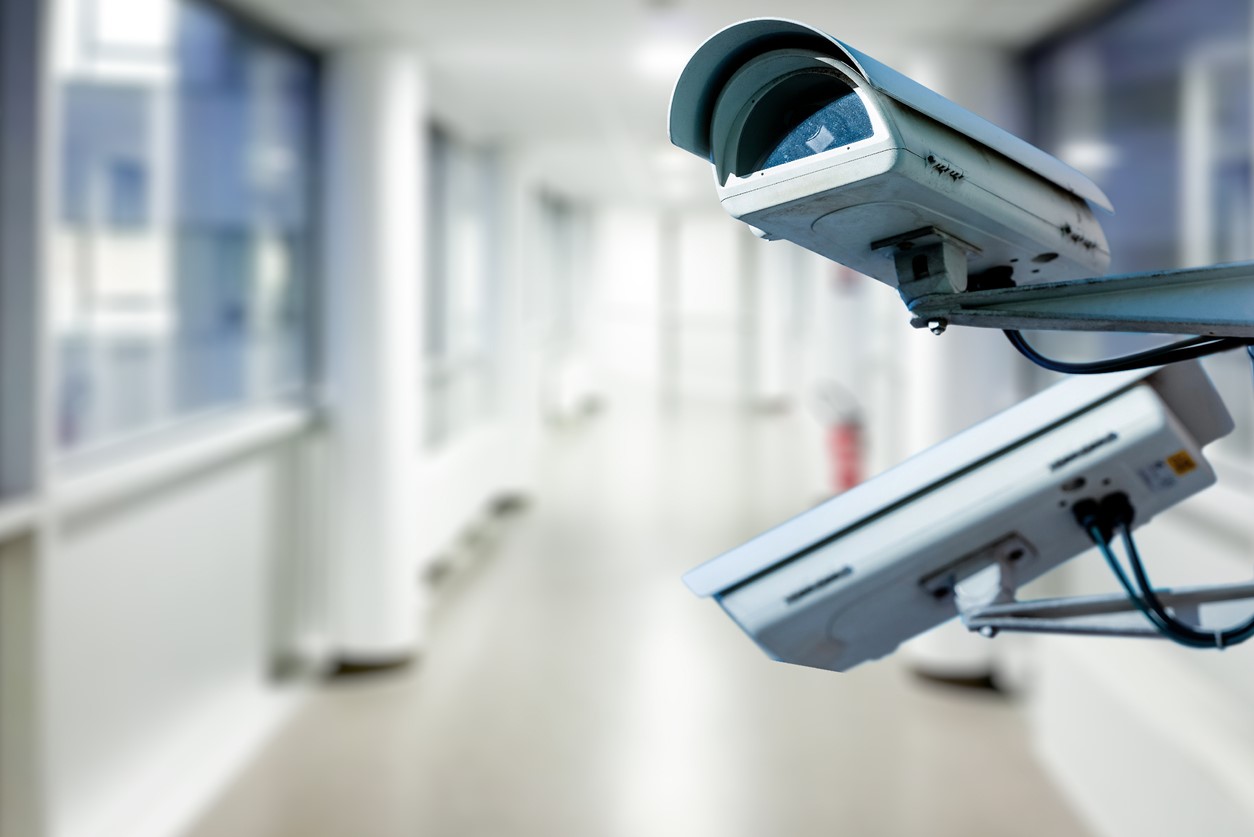Security cameras offer an additional layer of security that benefits staff, patients and visitors.
Healthcare facilities face a range of security challenges due to the high traffic of staff, patients and visitors passing through each day. Serious workplace violence incidents are four times more likely within the healthcare industry than in the private sector, according to data from the Occupational Safety and Health Administration (OSHA). And, healthcare facilities are up against theft, fraud and other criminal activities. It’s thus important to be strategic and thorough when deploying a security strategy, and to integrate multiple security methods.
Video surveillance is an effective additional layer of security that any hospital should embrace. The global video surveillance market is projected to reach $62.62 billion in 2023 as more and more organizations continue to deploy these systems.
7 ways security cameras improve healthcare safety
In healthcare facilities, cameras can be placed around the exterior of the building near entrances, exits and parking lots, and in the interior to capture hallways, nursing stations, patient wards, lobbies and waiting areas, and many other areas of the facility that may need monitoring. The cameras help protect staff and patients, act as a theft deterrent and contribute to an overall safe environment when integrated with other security systems.
1. Visitor management
Video surveillance can help facilities monitor who is entering and exiting the building and when. This is especially important for the healthcare industry, as restricted areas can be better monitored for unauthorized or suspicious visitors.
2. Staff protection
Security cameras help to protect staff members from unauthorized individuals entering the premises, but they also prevent patients or visitors from making false claims about staff behavior on the property. Video surveillance provides invaluable visual evidence that can resolve disputes quickly, including those between employees.
3. Patient monitoring
Some patients require continuous, 24-hour monitoring. With video surveillance, it’s possible to monitor patients in critical health or psychiatric situations, even in the busiest of environments. Multiple patients can be monitored from one station, improving staff efficiency.
According to data from the National Center for Missing and Exploited Children (NCMEC), there were 327 infant abductions related to healthcare from 1964 to 2019 and 140 were taken from healthcare facilities. Security cameras can help prevent this from happening in the facility and assist with identifying the criminal if it does.
4. Theft deterrent
Security cameras deter criminals from engaging in illegal activities such as break-ins and theft. This is important for healthcare facilities, as incidents of theft can be high and are often related to drugs, patient data, or expensive medical equipment.
5. Remote monitoring
Cloud-supported video surveillance now allows for remote monitoring, a huge benefit to healthcare facilities. The introduction of cloud computing brought major improvements to the way hospitals can use live cameras, including the ability to access cameras from anywhere and process and analyze the data offsite.
6. Evidence for investigations
Security camera footage is an important part of criminal investigations. If an incident occurs within a hospital or other healthcare facility, video surveillance recordings can provide concrete evidence that helps solve these investigations. Cameras thus impact the safety and security of both the facility and the community at large.
7. Emergency management with video analytics
If an emergency situation arises, including an incident that requires evacuation, cameras can assist in tracking how many people are in the organization at a given time. This requires more than just footage, however. Incorporating video analytics is a new technique of video surveillance that uses artificial intelligence in a monitoring system to detect patterns and provide important data to facilities.
Integrating video surveillance with other security systems
Hospitals are complex organizations. They’re faced with managing a variety of individuals circulating throughout the space, complicated regulations that must be followed, ensuring a comfortable and welcoming environment, and protecting patients, staff members and assets.
It’s important that video surveillance techniques work in conjunction with other security systems, including visitor management strategies such as ID and sign-in policies. Access control is another realm of security that goes hand-in-hand with deploying security cameras.
The professionals at Unisol International understand just how important it is to implement an effective security system in your healthcare facility. We provide turnkey deployments of IP Networking solutions, including security cameras and security video management software (VMS). We specialize in electronic security, and our products are available to customers anywhere in the world. We are fully compliant with trade regulations, export licenses and regulatory issues within the industry.
Contact us today to learn more about our security products and services.
